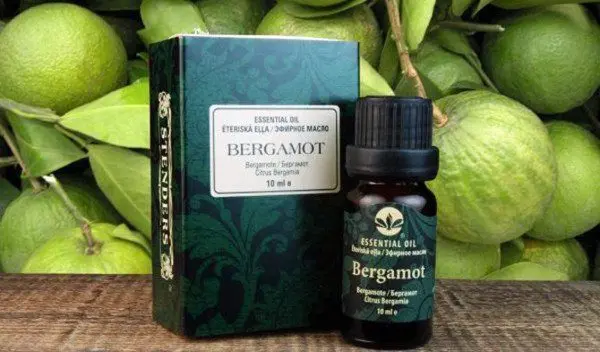Contents
😉 Greetings to regular and new readers! In the article “Bergamot: benefits and harms for the body” – basic information about this interesting plant. Useful properties of bergamot and contraindications. About tea with bergamot and essential oil. Facts and videos.
What is bergamot?
Many people confuse this fruit with a pear variety or believe that it is a fragrant herb. Friends, this is citrus! This is a hybrid plant that is obtained by crossing a citron with an orange.
Bergamot fruits are pear-shaped or round. They grow on an evergreen tree, reaching a height of 10 meters. The fruits of this citrus are inedible. In the perfumery industry, cosmetology and medicine, the oil of this plant is widely used.
Composition, calorie content
In 100 grams of pulp:
- calories – 27-30;
- proteins – 0,95 g;
- fats – 0,22 g;
- carbohydrates – 8,14 g;
- water – 85,78;
- essential oil;
- vitamin C, thiamine, beta-carotene, ascorbic and folic acids. Furocoumarins, L-linalyl acetate and L-linalool.
Bergamot: beneficial properties
- has antiseptic properties;
- natural antiviral, antifungal, bactericidal agent;
- helps to strengthen the immune system;
- treats herpes;
- has antipyretic effect;
- cough treatment;
- with colds;
- is an aphrodisiac;
- normalizes cholesterol;
- stabilizes blood pressure;
- helps get rid of dandruff;
- improves blood circulation (baths with the addition of a few drops of bergamot oil);
- for inhalation (1-2 drops of oil per 1 liter of water).
Противопоказания
- the plant contains furocoumarins, which contribute to skin pigmentation;
- is an allergen;
- it is not recommended to drink tonic tea with bergamot before bedtime;
- fruits are not suitable for eating;
- contraindicated in pregnancy;
- individual intolerance.
Bergamot tea
I first learned about bergamot 20 years ago. Once my friends gave me a tin can of tea from the British company “Twinings”. The jar said Earl Gray Tea. Since then, I have adored this drink with its unusual aroma and taste.
This tea is often referred to as “The Gray Earl” in a distorted translation. But right and literally – “Earl Gray”!
There is an interesting legend about this tea. Long ago, in 1838, an English merchant ship transported a large consignment of tea and bergamot oil from India to England. A violent storm began, during which several barrels of oil overturned, pouring bales of dry tea leaves.
The owner of the ship did not dare to throw away the expensive “spoiled tea”, which soon appeared on the shelves. The British enjoyed the unusual tea. This is how a new type of tea appeared, which began to be called “Earl Gray”, after the owner of tea plantations in India.
Want to buy quality tea? choose the classic: black tea with bergamot oil. Everything! Various additives and artificial flavors should not be here. And remember that it doesn’t go well with milk.
Bergamot essential oil: properties and uses

Bergamot oil is obtained from zest, flowers and leaves. The main component (up to 50%) is linalyl acetate and linalool. The oil is used in cosmetology for oily or combination skin.
- bergamot oil dries and eliminates skin rashes;
- eliminates inflammatory processes;
- normalizes the secretion of the sebaceous glands;
- tightens pores;
- effective for seborrhea, eczema, acne, psoriasis;
- gives hair a natural shine and pleasant aroma;
- aromatherapy. Add 1-2 drops per 5 sq. M. To the aroma lamp. the area of the room;
- added to massage cream (5 drops) and for bathing (7 drops per bath).
Good advice: Buy quality oil from Turkish, British or American manufacturers.
Video
Read more in this video on “Bergamot: Benefits and Harms”.
😉 Leave additions and advice to the article “Bergamot: benefits and harms to the body.” This is very important for the author! Always be healthy and beautiful!









